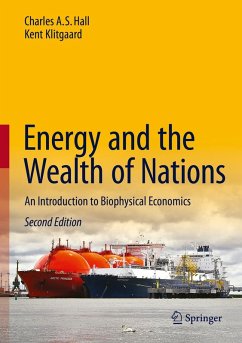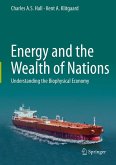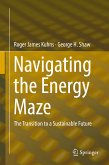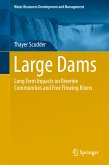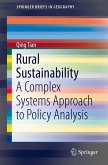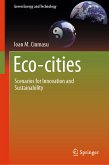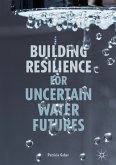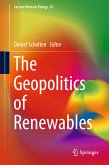- Includes several new chapters and comprehensive updates addressing the implications of hydraulic fracturing (fracking), access to energy and social inequality, as well as climate science and planetary boundaries
- Integrates energy and economics by combining natural and social sciences
- Uses predictive tools and measures, such as EROI, to show how the economy is embedded in a biophysical world subject to scientific rules and constraints
- Provides a fresh approach to economics for those wondering "What's next?" after the Great Recession and continued volatility in energy prices
- Offers economic analysis from the real-world perspective of peak oil, high energy prices, the role of alternative energy sources, and potential environmental impacts of energy use such as climate change
Dieser Download kann aus rechtlichen Gründen nur mit Rechnungsadresse in A, B, BG, CY, CZ, D, DK, EW, E, FIN, F, GR, HR, H, IRL, I, LT, L, LR, M, NL, PL, P, R, S, SLO, SK ausgeliefert werden.
"This textbook has constructed an excellent approach on how to better understand economies and natural systems, and their interactions. ... this book functions as a valuable academic discussion, as well as a starting point for the economic uninitiated. It has the potential to be an effective textbook for institutions looking to advance their economic teaching past the mainstream model and to seriously incorporate sustainable thinking into their teaching of economics." (Aaron Grinter, Economic Record, Vol. 95 (308), March, 2019)

